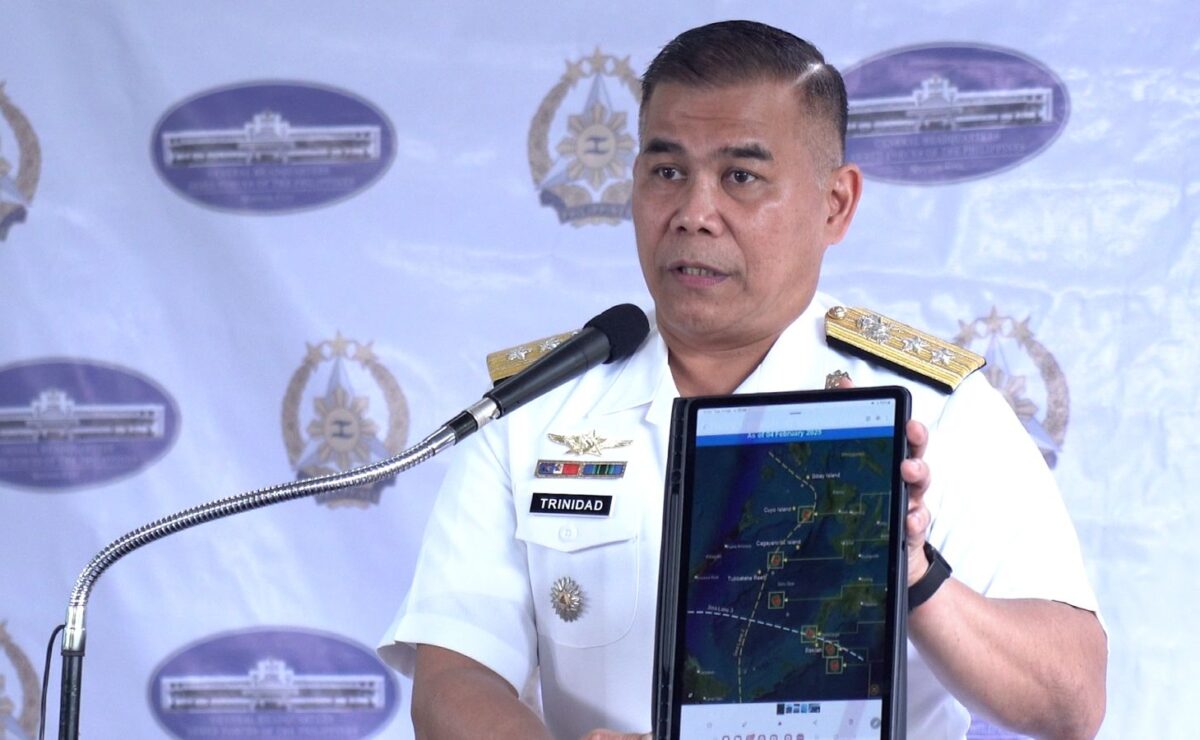Navy: China likely deployed recently found drones in PH

Rear Admiral Roy Vincent Trinidad, spokesperson for the West Philippine Sea – Philippine Navy, speaks to the members of the media during the AFP Weekly Press Briefing at Camp Aguinaldo, Quezon City on February 4, 2025. INQUIRER.net file photo / ARNEL TACSON
MANILA, Philippines — The recently found underwater drones in Philippine waters are likely deployed by the Chinese government, a finding that alarmed the country’s security body.
READ: West PH Sea: Philippines recovers suspected Chinese submarine drone
Rear Admiral Roy Vincent Trinidad, Navy spokesperson for the West Philippine Sea, said these are based on their investigation into the four drones found by fisherfolk in different areas.
“There is 55 to 85 percent likelihood that this was deployed by the Chinese communist party,” Trinidad said in a regular military press briefing in Camp Aguinaldo on Tuesday.
According to him, there is also a “55 to 80 percent” likelihood that the four drones were made in China.
National Security Council spokesperson Jonathan Malaya echoed this finding.
“The forensic examination on the submersible drones have allowed us to conclusively determine that they are of Chinese origin,” Malaya said in a statement.
“They are also in all likelihood deployed by China to map the PH’s underwater terrain,” he added.
How did it end up in PH?
Trinidad said two drones were found in Ilocos Norte and Zambales in 2022.
In 2024, a drone was also found in Calayan, Cagayan and another one in Initao, Misamis Oriental.
He said these areas “are important strategically in the defense and security not only of the country but for international maritime navigation.”
Trinidad also said they see several ways as to how China launched the drones, but it is more likely that a “mother ship” airdropped the drones.
“Drones like this could either be launched by air, by a mothership or by a submarine,” Trinidad said. “But most likely, these were dropped by a mothership.”
Meanwhile, a drone was also found in San Pascual, Masbate in 2022, but Trinidad said the Navy has yet to conclude its investigations.
Other findings
Trinidad also bared that some of the drones obtained key data that could be used militarily, among other uses.
“The data received focuses more on bathymetric data, depth of water, salinity, temperature, propagation of sound. All of these have applications across different fields, academic research, commercial purposes, and also military use,” he said.
The drones also appeared to have the capability to receive, store, process, and transmit such data through satellite communications to a station on land, to a mother ship, or to other drones.
“It’s very clear that these are used for mapping out the underwater terrain, collecting information,” Trinidad said.
“Any potential adversary who would like to harm our country would need to know the information, not only on land, on air, but more importantly, since we are an archipelago, underwater information,” he added. “These drones give them that information.”
National security threat
Malaya and a security expert also sounded the alarm on the threat that the drones posed to the country’s national security.
“This is alarming because of its implications to national security,” Malaya said. “This only shows that we need to be more vigilant, and we need to undertake more maritime patrols in more parts of the country to stop these types of activities.”
Security expert Chester Cabalza said these drones show China’s “unstoppable infringement” in the Philippines.
“The presence of scattered Chinese-made submersible drones in the three major islands of the Philippines apparently show China’s unstoppable infringement in our territory,” Cabalza, president and founder of Manila-based think tank International Development and Security Cooperation, told INQUIRER.net on Tuesday.
“It poses imminent danger to our national security when unauthorized unscrewed aerial systems like drones can survey critical infrastructures and increase acts of state-sponsored drone-assisted espionage,” he continued.
For comprehensive coverage, in-depth analysis, visit our special page for West Philippine Sea updates. Stay informed with articles, videos, and expert opinions.


















